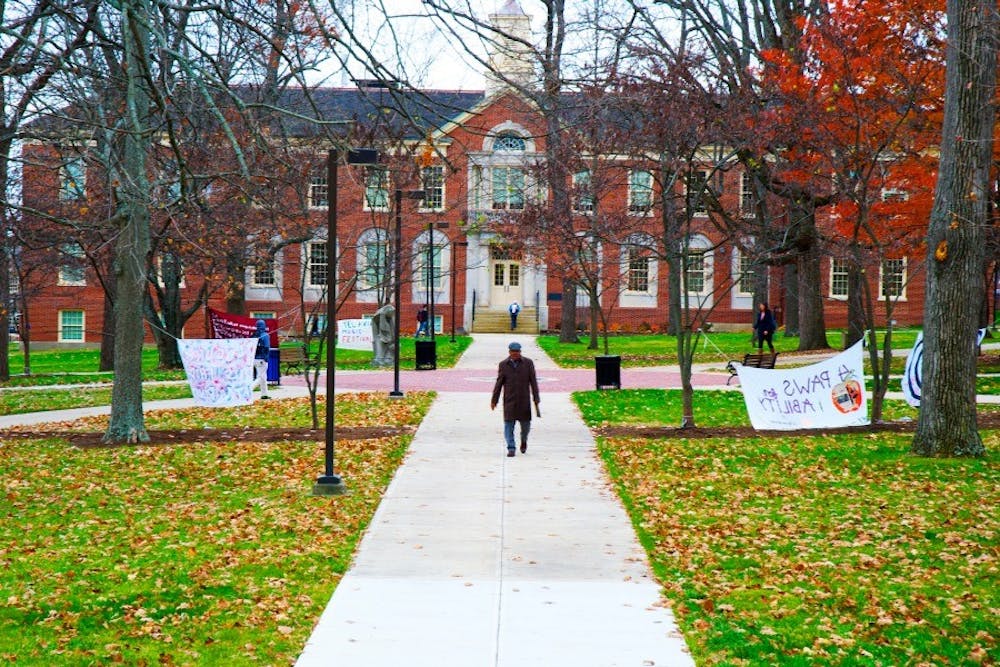By Karen Augenstein, Senior Staff Writer
Rachel Reeves, a sophomore and the Associated Student Government's Director of Disability Advocacy, has passed a resolution in ASG that will lead to the construction of six to eight benches around Miami University's campus. Reeves estimates the construction and installation of the benches will cost approximately $6,000, and ASG hopes to have them installed by fall 2016. Reeves has been working with members of Student Senate to allocate funds.
"I am really excited to get these things on the ground. I want them to be built as soon as possible," Reeves said.
Currently, there are very few benches available on Miami University's campus, particularly in high-traffic areas. Due to Miami University's terrain, students who have mobility disabilities struggle when traveling to and from classes. Reeves, who has a physical disability, noted the importance of having accessible benches when traveling around campus.
"I've missed class before because I can't make it up large hills," Reeves said. "If there is a bench available, I might not have to stop as much to catch my breath. If there are benches available, I will miss less class and become a better student because of that. For people that need to use these benches, it is astronomically beneficial."
Miami University has approximately 800 students who are registered with Student Disability Services. According to Andrew Zeisler, director of Student Disability Services, accommodations such as benches benefit these students, who comprise about 1 percent of the student body.
In addition, Zeisler said benches can serve a dual purpose.
"Benches not only benefit the social aspect on campus, like having places to sit, but also it is beneficial for students who have a physical disability who may need to rest or pace themselves while walking to class," Zeisler says. "They will benefit everyone."
Ellen Kahle, a freshman with a physical disability, agreed that benches around campus will be beneficial all around.
"It will provide people with more opportunities to have a comfortable seat outside. Additionally, it will provide students and faculty who get tired easily somewhere to rest on the long journeys across campus," Kahle said.
Reeves said visitors to campus have also expressed dismay about the lack of benches around campus. The solution, she said, is to place benches in strategic, high-traffic locations.
"I think Miami is very fortunate to have people on campus who are so committed to inclusion and equality," Zeisler said. "It's refreshing and it's time for the way we think about universal design and accessibility on campus."
Reeves anticipates obtaining the funds to implement the construction of benches around campus will not be a problem.
"I can't wait to actually physically touch one of the benches and say, 'I made that.' That's a tangible mark that I can leave on this university that will be there when I'm gone, and that's all I want to do with my college career," Reeves said.

